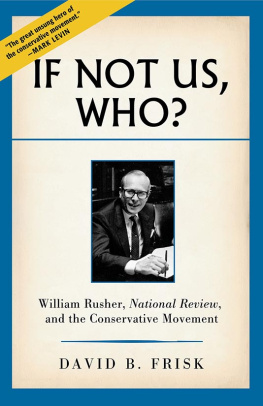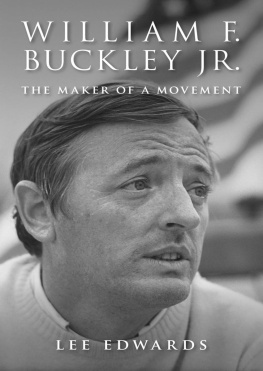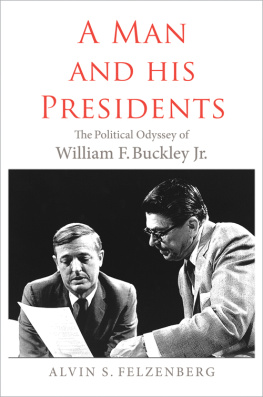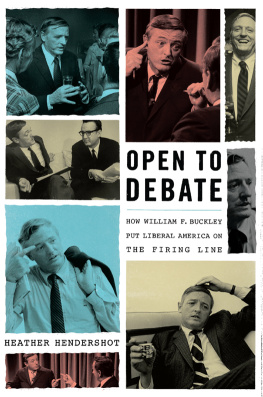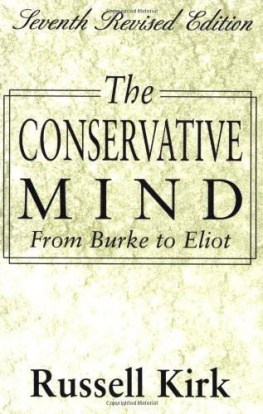Why Lawsuits Are Good for America: Disciplined Democracy, Big Business, and the Common Law
The Second Amendment in Law and History: Historians and Constitutional Scholars on the Right to Bear Arms (editor)
In a profile for the Atlantic (July/August 2009), Garry Wills wrote that Buckley sometimes was unsure of the meanings of his big words and misstepped. If so, this is an etymological debate at the highest level.
Three generations of one family probably never compiled a more stellar academic record at Yale. Another of Alphonsos sons, Peter, was valedictorian of his class.
Before switching votes to be with the winner, delegates cast 595 votes for Eisenhower, 500 for Taft, 81 for Earl Warren, 20 for Harold Stassen, and 10 for Douglas MacArthur.
Wilsons intervention in the Mexican Revolution paralleled his involvement four years later in the Russian civil war, when he sent eight thousand U.S. troops to Vladivostok, Russia, to protect retreating Czechoslovakian forces and ensure that American arms and material intended for the White Army did not fall into Bolshevik hands. The main differences were that the Polar Bear Expedition, as the American force was called, was working in collaboration with British forces, and wound up in direct combat with Bolshevik forces.
Bill and Pat became lifelong friends with Hunt and his wife. After Hunt was arrested for Watergate, he told Buckley enough about his work for the Nixon Whitehouse to make Buckley suspect that Hunt and fellow Watergate burglar G. Gordon Liddy had been instructed to assassinate Jack Anderson, an investigative journalist whom Nixon considered an enemy. Buckley, who placed a high premium on friendship and loyalty, helped pay Hunts lawyers. After anguished consideration, Buckley decided that he was not certain enough about the assassination plot to report that to authorities. He recused himself at National Review on all editorial decisions regarding Watergate, however.
Because the statute of limitations had run out on his acts of espionage, Hiss was indicted for lying to Congress when he denied having been a Soviet spy. The first trial ended in a hung jury, but a second jury convicted Hiss. Although debates long raged over who told the truth, the present-day consensus among historians is that Alger Hiss was in fact a Soviet spy. E.g., G. Edward White, Alger Hisss Looking-Glass Wars: The Covert Life of a Soviet Spy (2005); Allen Weinstein, Perjury: The Hiss-Chambers Case, rev. ed. 1997). See also Sam Tanenhaus, Whittaker Chambers: A Biography (1998); Susan Jacoby, Alger Hiss and the Battle for History (2010).
In addition to Kirk, the new conservatives included sociologist Robert A. Nisbet, political scientist Clinton Rossiter, and historian and poet Peter Viereck, all of whom will be discussed later.
The six works, in chronological order, are: F. A. Hayek, The Road to Serfdom (1944); William F. Buckley Jr., God and Man at Yale (1951); Whittaker Chambers, Witness (1952); Russell Kirk, The Conservative Mind (1953); Barry Goldwater, Conscience of a Conservative (1960); Milton Friedman, Freedom and Capitalism (1962). While I am unaware of any survey identifying these as the canonical texts of modern conservatism, my readings of conservative literature persuade me that this would be the likely result if such a survey were taken. For reasons discussed later, I do not classify Ayn Rand as a conservative.
Kirks journal began publication in 1957 as a quarterly under the name Modern Age , a name that Kirk considered ironical as the journal was to be in sardonic defiance of the fads and foibles of the twentieth century. Kirk edited the journal for only two years. He said that under his stewardship, the journal obtained a surprisingly friendly reception from unconservative quarters, which, no doubt, Meyer and Chodorov would have taken as further confirmation that Kirk was not a true-blooded conservative. Although it never achieved wide circulation, Modern Age is still being publishedtoday by the Intercollegiate Studies Institute, an organization founded by Frank Chodorov. Russell Kirk, The Sword of Imagination , 191 (sardonic defiance), 195 (resignation as editor).
Buckley did not receive accolades from Whittaker Chambers, however. Buckley had portrayed Khrushchev as a ruthless murderer. In a private note, Chambers told Buckley that Khrushchev was not Stalin. Khrushchev was not a monsterand it did the conservative cause a disservice to say that he was.
I italicize The Politician for the first time because Welch published it as a book in March 1963. Welch said that because so many wild statements had been made about the manuscript, he was forced to publish it in self-defense so that readers could judge it for themselves.
Branden was twenty-four and Rand was forty-eight when, in 1954, they began their affair. Rand insisted that because it was rational for them to have a romantic relationship, they inform both of their spouses and insist upon their consent. Rands husband, Frank OConnor, had an easier time accepting the affair than did Nathaniels wife, Barbara, although both tried. When, in 1968, Branden broke off the affair, and Rand learned that he had fallen in love with a third woman, she became enraged and ejected him from her organizationwhich, Rands critics argue, demonstrates that even Rand could not live by philosophy.
Without Kennedys authorization, four Alabama National Guard pilots flew two B-26 bombers from a CIA base in Nicaragua. Both planes were shot down over Cuba and all four pilots killed. Cover stories were devised to conceal the pilots participation in the invasion, even from their own families.
No one reasonably believed that Governor Wallace genuinely asked President Johnson to nationalize the Alabama National Guard. Johnson nationalized the guard because Wallace would not use either it or the state police to protect the civil rights marchers.
So deftly did Johnson maneuver McNamara out the door of the Pentagon that many years later McNamara said, I do not know to this day whether I quit or was fired.
A still-popular conservative narrative is that Eastern elites drove opposition to the war. Gruening, Morse, Fulbright, and McGovern were, respectively, from Alaska, Oregon, Arkansas, and South Dakota. Senator Eugene McCarthy, who challenged Lyndon Johnson for the 1968 Democratic presidential nomination over the war, was from Minnesota.

William F. Buckley Jr. holds a copy of his first book, God and Man at Yale, in 1951, the year of the books publication. Photograph Bettmann/CORBIS.

Whittaker Chambers in 1948. Photograph by Fred Palumbo of the New York World-Telegram & Sun, courtesy of the Library of Congress.
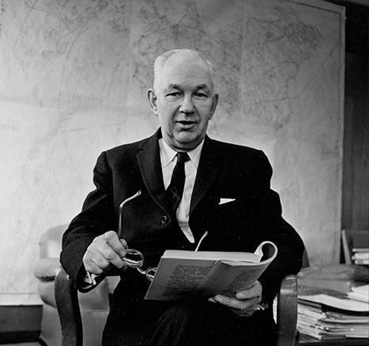
Robert Welch, founder of the John Birch Society, reading from his controversial manuscript The Politician. Photograph courtesy of the Library of Congress.

Professor Clinton Rossiter of Cornell University, one of the so-called new conservatives who advocated a Burkean vision rather than Buckleys approach. Photograph courtesy of Caleb Rossiter.
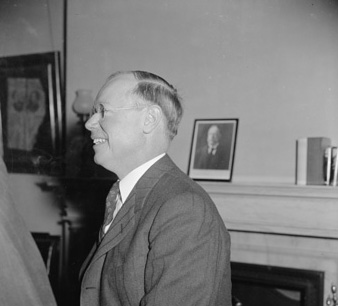
Next page

